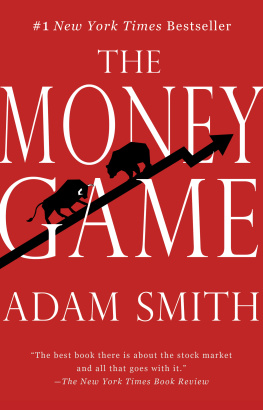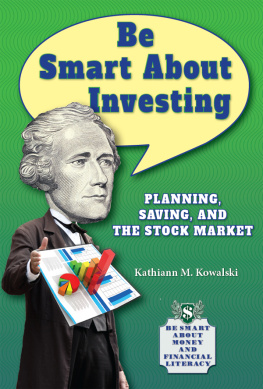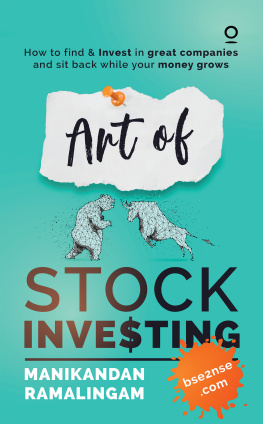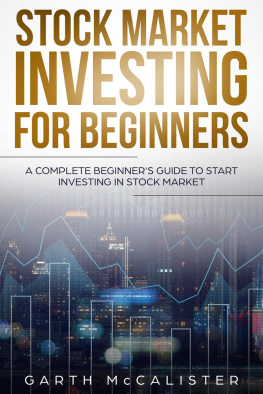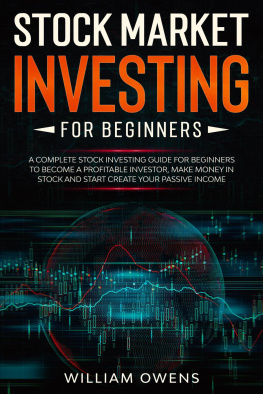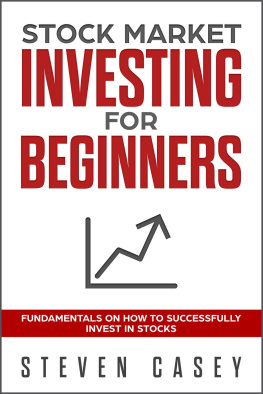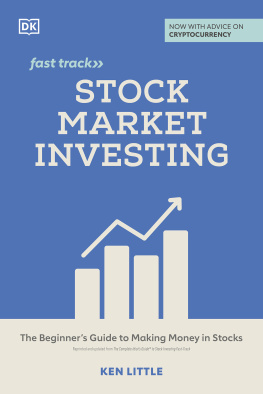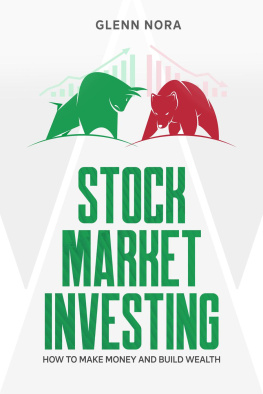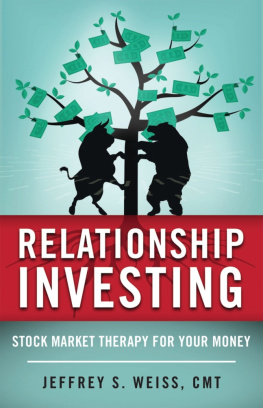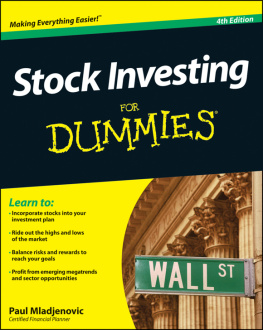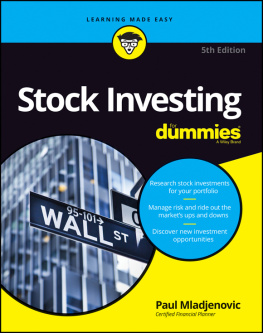The Money Game
Adam Smith

CONTENTS
For Sallie Brophy
Kinswoman and friend
PREFACE
It is now a decade since The Money Game was written. Ben Graham, the classics scholar who was the dean of security analysis, started his text with a quote from Horace: Many shall come to honor that now are fallen, and many shall fall that are now in honor. That is certainly true for the players of the money game over the decade, as it probably will be in any decade. Not only did some of the players fall, but the names of some of the companies in The Money Game have become one with those of the harness makers and the locomotive kings. Any book written in the sixties is going to have some images that become the nostalgic amber of old tintypes.
This edition of The Money Game is the same as the firstnot a word changed, as they say. There are other conventions which could be brought up-to-date, should the author choose to meddle. For example, Cassius Clay has become Muhammed Ali, and so on. But the book stands as it did.
For The Money Game is not, first and primarily, about money. It is not a compendium of techniques, nor even something that could be filed under microeconomics. Such a book would have dated more. The Money Game is, it says, about image and reality and identity and anxiety and money. That seems still the proper order. The money which can preoccupy so much of our consciousness is an abstraction and a symbol. The game we create with it is an irrational one, and we play it better when we realize that, even as we try to bring rationality to it. New Book That Views Market as Irrational Is a Hit on Wall Street, the Wall Street Journal headlined, in some wonder.
Irrational? When its language was built upon numbers, the very essence of rationality? It did seem an odd idea, even as the accounting boards worried about all the dialects that could be created out of that language of numbers, so that clarity became elusive. But the false rationality of numbers was not the only symbol that was not what it seemed. Another was the image of the banker, the Prudent Man, the Steward of Capital. For behind the funds which described themselves as virtue engenderedthat is, Prudent and Faithful, usually in the more Latinate form, and American and Growth-Seekingthere operated a new generation of professional money managers, unscarred by depression memories, whose efforts were bent not toward the stewardship of capital but toward its increaseand incidentally making a record for the fund, which could then be sold to more investors. The ebullient sixtiesso they seem, after half a decade of the gravest economic dislocation since the great world depression of the thirties. There were cities burning, civil disorders, an unpopular war, campuses torn apart, Presidents driven from officebut also a sense of excitement that contrasted with the gray fog which was to follow. The markets churned, but the times were good. You and I know, says one of the characters in The Money Game, that one day the orchestra will stop playing and the wind will rattle through the broken window panes. I must have liked the image; I used it again after The Money Game appeared but before the market fell apart: We are all at a wonderful party, and by the rules of the game we know that at some point in time the Black Horsemen will burst through the great terrace doors to cut down the revelers; those who leave early may be saved, but the music and wines are so seductive that we do not want to leave, but we do ask, What time is it? what time is it? Only none of the clocks have any hands.
So we knew it was going to happen, and it did. The Black Horsemen came and cut down the revelers, even those with the names of virtue engendered like Prudent and Faithful and American and Growth. If you entrusted your money to them at the end of the sixties, you were lucky to keep half. That went, too, for banks whose headquarters were vaulted like cathedrals. Not only did the market go down, it kept going downthe popular averages disguised the extent of the decline. Another day it would come back, but not until the unscarred generation, so bold without memories, had become scarred like its predecessor.
Probably the biggest error in The Money Game is an implicit one. The small investor is a lovable fool, and the professional manager is a worldly riverboat dealer; find smart people, the small investor is told. Very good. That is like Ben Graham saying, Many shall be called to honor that now are fallen. But how do you find smart people? Those who have just finished being smart are sometimes the dumb ones in the next part of the cycle. The scarred sit, frozen by memories, through the ebullient markets, and the unscarred are sliced apart by the Black Horsemen of greed at the end. Only a longer time span reveals the truly Prudent Man, who knows that the first rule of making money is not to lose it. The implication in The Money Game is that the professional investors, who have access to all the information, whose computers can churn out ratios at fingertip touch, are smarter than the small investor. They are not smarter, they merely have more information. That does not protect them from the compulsions of theology; witness the wonderful Two Tier market of the seventies, with the so-called Nifty Fifty growth stocks selling all by themselves, supported by the religion of the managers, until they collapsed. The small investors without theology fared better.
There were two legal changesstrokes of the pen on a lawthat were to change the theater or stadium in which the game was played. When the brokers first met under the buttonwood tree in 1794, a kind of club was formed, with the members agreeing on the fees or commissions to be charged to those outside the club who wanted to use the facilities to trade. That fee was the same for each share, whether you were buying one share or a million. If you were buying a million shares, the commissions were quite large, though it cost the broker no more for the pencil and pad to write the order. As the institutionspension funds and mutual fundsgrew in size, sometimes there actually were million-share orders, and frequently orders in the hundreds of thousands, but the cost of making the trade involved no more people than a few shares would have.
But by the early seventies, the fixed-fee system had been broken. The institutions bargained forand gotreduced rates on their commissions. For the brokers who had set their costs on the old, fixed rate of commissions, the result was loss, and many of them did not survive. Here is a paragraph from an essay I did at the time, called The End of the Buffalo Days:
Up and down the Street, various entities are waking to the possibility of their own extinction. It is an extraordinary time. There have been periods of consolidation in American industrial history before, of course. But the financial community has been built along the same lines, and with almost the same customs and mores, for the better part of 200 years. Of course, time is no guarantee. The livelihood, the customs and mores, the rhythm of life of the Sioux were centered around the buffalo. Standing on a hill, looking over a mass of hundreds of thousands of buffalo, it must have been out of the realm of consciousness that anything could ever happen to so many buffalo, and when something did, all the trusted actions of the shamans and the ghost dancers were of no avail.
Diminished commissions meant that the river of income for research and for all those brokers calling customers with tips dried up. Not so many friendly voices on the telephone.

